PETA has the philosophy that any kind of attention is good attention. This led to PETA spending good advertising money on relatively stupid things – like making a flash game condemning the popular game Pokemon. A lot of time, effort and money went into the creation of the parody game Pokemon Black & Blue. The result of this effort is a whole lot of well deserved hating and a subpar game. As a fan of Pokemon and a supporter of stopping animal abuse I can tell you one thing; I - and many others like me - am actually offended. However the worst crime this parody commits, besides being relatively unfunny, is that it is ineffective at what it was supposed to do - gain supporters for PETA.
The game follows the basic mechanics of a Pokemon game and uses the names of some of the characters, but really that is where the similarities end. It is very obvious that PETA did not do enough research on Pokemon. All they saw were animals fighting and decided “Well hell! Let’s protest the crap out of that!” Which is where the major problems lie.
On the page where the game is located anyone well versed in Pokemon can see one of the biggest flaws. Pikachu, probably the most famous Pokemon of all time, is holding a sign announcing that he -and PETA, because in this game Pikachu is the voice of PETA – supports Team Plasma. Anyone familiar with the latest installments of the Pokemon game franchise knows that Team Plasma’s real goal is “ruling Unova as the only one[s] with Pokémon.” (“Team Plasma”, Bulbapedia). How do they go about doing this? By forcing people to give up their Pokemon, claiming that they are being “liberated” when really those Pokemon are now just being enslaved by Team Plasma to go “free” more. Seems like a really sinister plot for PETA to being agreeing with, doesn’t it? When you play the game you also notice other flaws, a major one tying into the stupid choice PETA made by advertising their support of Team Plasma. They decide to use Ghetsis as a villain. The problem with this? Ghetsis is the true leader of Team Plasma, the group that PETA claimed to support right on the game page. This seems a little hypocritical, now doesn’t it?
The game follows the basic mechanics of a Pokemon game and uses the names of some of the characters, but really that is where the similarities end. It is very obvious that PETA did not do enough research on Pokemon. All they saw were animals fighting and decided “Well hell! Let’s protest the crap out of that!” Which is where the major problems lie.
On the page where the game is located anyone well versed in Pokemon can see one of the biggest flaws. Pikachu, probably the most famous Pokemon of all time, is holding a sign announcing that he -and PETA, because in this game Pikachu is the voice of PETA – supports Team Plasma. Anyone familiar with the latest installments of the Pokemon game franchise knows that Team Plasma’s real goal is “ruling Unova as the only one[s] with Pokémon.” (“Team Plasma”, Bulbapedia). How do they go about doing this? By forcing people to give up their Pokemon, claiming that they are being “liberated” when really those Pokemon are now just being enslaved by Team Plasma to go “free” more. Seems like a really sinister plot for PETA to being agreeing with, doesn’t it? When you play the game you also notice other flaws, a major one tying into the stupid choice PETA made by advertising their support of Team Plasma. They decide to use Ghetsis as a villain. The problem with this? Ghetsis is the true leader of Team Plasma, the group that PETA claimed to support right on the game page. This seems a little hypocritical, now doesn’t it?
Another problem with the idea behind Pokemon equaling animal abuse can also be spotted on the game page. “The amount of time that Pokémon spend stuffed in pokéballs is akin to how elephants are chained up in train carts, waiting to be let out to "perform" in circuses. But the difference between real life and this fictional world full of organized animal fighting is that Pokémon games paint rosy pictures of things that are actually horrible." (PETA, Pokemon Black & Blue game page). Well gee, that certainly seems awful. That is until you actually play a Pokemon game, read a Pokemon manga or watch the Pokemon anime. If you do that, you’ll notice that PETA has got the idea totally wrong. See, the thing is, Pokemon do not have to fight if they don’t want to. Take Ash’s Charizard in the show for example. No matter how hard Ash tries to get his Charizard to help out in Pokemon battles, Charizard usually doesn’t do it. Why? The answer is simple, because Charizard does not want to fight. So he doesn’t. Countless times Ash has tried to coax his Charizard into helping out, to no avail. If a Pokemon doesn’t want to fight, it won’t fight. In the games it is not uncommon to have your Pokemon not listen to you and either “loaf around” or use different attacks that you asked them too if the Pokemon is over a certain level and you do not have the right Gym Badges. No matter how hard the trainer tries, if a Pokemon doesn’t want to do it, it won’t do it. It’s as simple as that. The same can be said of the Pokeballs. Poekmon can leave the Pokeballs they are carried around in at their own discretion, regardless of their trainer’s wishes. In the show Misty’s Psyduck and Jessie’s Wobbuffet are prime examples of Pokemon leaving their Pokeballs whenever they feel like it. These two are constantly popping out at their own discretion, much to the dismay of Misty and Jessie. It seems a little odd that Pokeballs can be classified as “cruel” and akin to “cages” when it is obvious the Pokemon can leave them whenever they want too. After all, if they choose to stay inside, there must be something nice in there or it must be pretty comfy inside.
During game play one of “villainous” trainers declares, "It's not about what Pokemon feel." That’s incorrect because in the games and the show it is very much about how a Pokemon feels. If a Pokemon likes it’s trainer, and their bond is strong, then that Pokemon becomes more powerful than if it was in the wild. The show constantly has trainers asking their Pokemon how they feel, if they are feeling all right and taking care of them. In the game there is even the “feeling checker” where you can find out your friendship level with your Pokemon. "Friendship, also often referred to by fans as happiness, is a measurement of how much a Pokemon loves its Trainer and enjoys being in their care." (“Friendship”, Bulbapedia). There are many moves that are even based around your Pokemon’s feelings, such as return and frustration and also items that can increase your Pokemon’s friendship level such as the Soothe Bell. That seems like a pretty big emphasis on Pokemon’s feelings for a game where “feelings don’t matter.”
Another issue is what PETA has the villainous version of the TV show’s main character Ash Ketchum say. At one point Ash declares, "I don't hate you. I just don't care. Have I ever shown an inkling of concern about you one way or the other?" The thing about that is that it is untrue. Ash always shows concern for Pokemon – whether they are his friends, wild ones he encounters or even his “enemies.” In the very first episode of the anime, “Pokemon I Choose You”, Ash very nearly gets himself killed by protecting his new partner Pikachu from a hoard of attacking Spearow and Fearow. It is this concern for Pikachu and disregard for his own well being that makes Pikachu realize that being his friend is a good thing. In Pokemon The First Movie Ash sacrifices himself for the good of all of the Pokemon and Pokemon “clones” in the immediate area. He dashes in between two feuding legendary Pokemon and gets turned to stone. His sacrifice so touched the hearts of the surrounding Pokemon that the love and respect they felt returned him to normal. A little silly, but it truly shows the extent to which Ash cares about Pokemon. PETA also has the villainous Ash tell Pikachu "I never asked you if you wanted to battle other pokemon or wanted to leave your pokeball to stretch your legs." The major flaw in this is the fact that Pikachu doesn’t go into a Pokeball in the anime or the game based on the anime (Pokemon Yellow). Pikachu refuses to go into a Pokeball and Ash let’s Pikachu roam free with no qualms about it as a result. This is something that anyone who has seen even 10 minutes of the show or played 10 minutes of Pokemon Yellow would know. It kind of renders PETA’s argument moot, doesn’t it?
The biggest problem with Pokemon Black & Blue comes from the fact that PETA actually wants children to play it, instead of or in addition to regular Pokemon games. This is a problem not only due to the relatively lackluster story, the short game play and the preachy tone but also due to the obtainable “treasures.” As if the blood spattered and carnage filled surroundings weren’t enough, the very first “treasure” you can unlock in Pokemon Black & Blue is a video that is almost three minutes long that features multiple examples of animal abuse. There is a fox whose leg is mostly bone, men throwing chickens into cages and breaking their necks, men chasing animals around with whips, men electrically prodding a cow until it can’t stand up and many other types of violence. This is enough to scar any child and possibly even stop them from eating not only meat, but also any kind food. It may also be enough to cause children to believe that animal abuse is OK. They are impressionable and they just witnessed adults doing it, so why can’t they? The age range for people who play Pokemon is somewhere between 5 and 35. Children at the lower end of that spectrum are way too young to be exposed to such horrifying imagery. If this is the way PETA goes about delivering “the message [they] believe should be sent to children” regarding Pokemon “use and abuse” they should probably think it over some more. (PETA, Pokemon Black & Blue game page). Maybe find a less offensive and scarring way to go about it.
Gone are the days when PETA used to protest animal abuse by parading naked in the streets, showing off simulated skinned animals at fashion shows or wearing vegetarian bikinis. No longer is this satisfying to the relatively radical organization. Now they are doing something much worse and much more offensive – attacking people’s childhoods. To make matters worse, they do so without obtaining the proper information needed to support their very flawed argument. That is just not right. PETA, it’s time to go back to the drawing board. Offending people is really not the best way to go about gaining support.
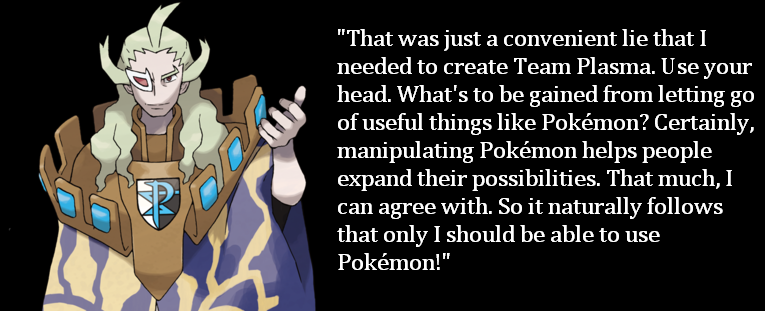
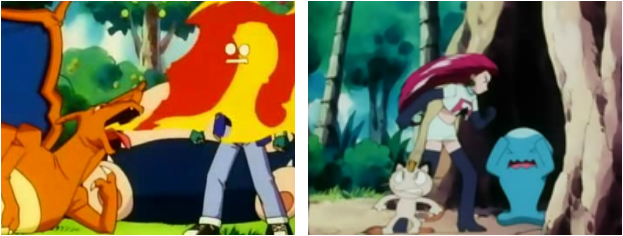
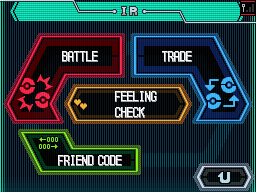
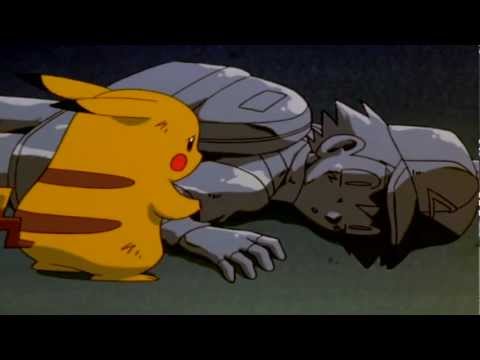
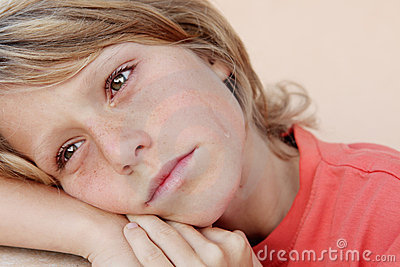
 RSS Feed
RSS Feed